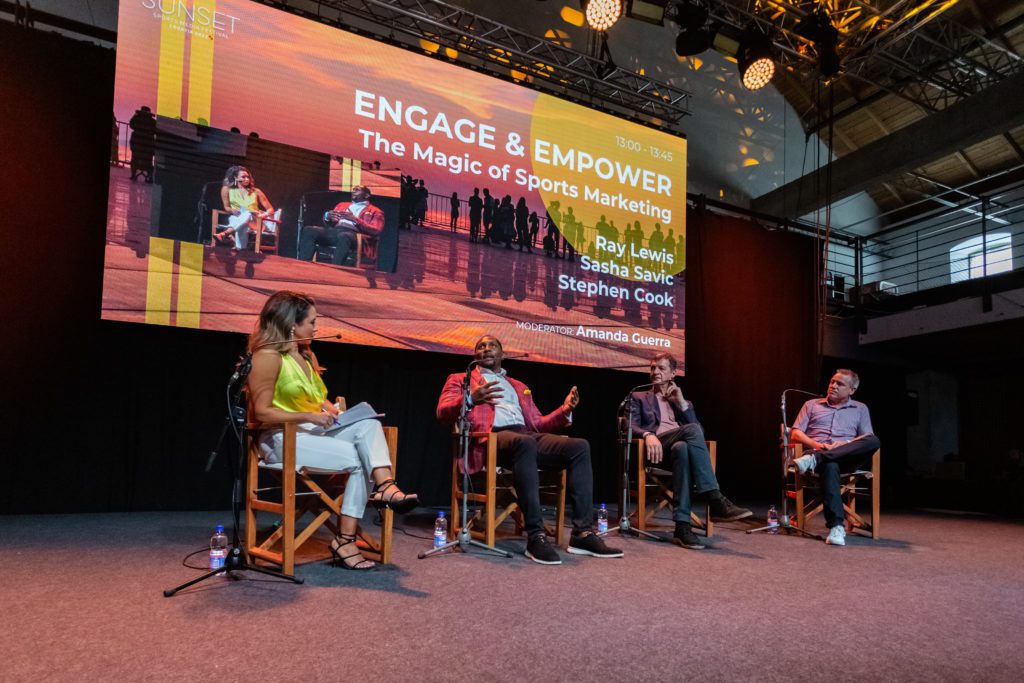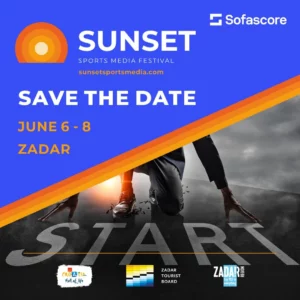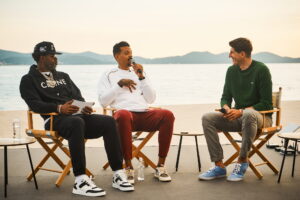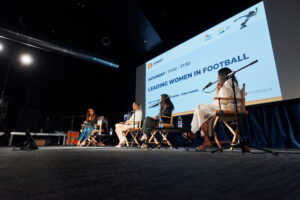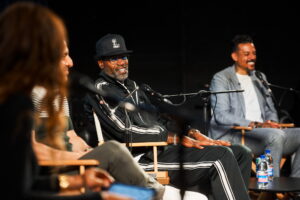Stephen Cook (SVP, Director of Content at IMG), Sasha Savic (CEO of MediaCom and AdWeek’s 2021 CEO of the Year) and Ray Lewis (2X Super Bowl Champion and MVP)
Moderator: Amanda Guerra (CBS Sports)
When it comes to fans all around the world nothing brings forth such vicarious identification quite like sports. Whether it be their favorite team or one of the superstar athletes that they may idolize, levels of their passion and involvement are sky-high. With sports marketing and world media being so intertwined and interdependent, what is the best way to responsibly leverage the popularity and attention of sports to everyone’s satisfaction? This topic and many others are something we will hear more about from panel of international experts: Sasha Savic, CEO of MediaCom, and Ray Lewis, Super Bowl MVP and Stephen Cook, SVP Director of Content, IMG.
Sasha says during his career he was always more interested in what was happening tomorrow rather than yesterday. He says he’s seen more changes in the last 2 years in sports media, partly because of the pandemic, but also because of the rise of technology in and out of sports.
“Sports naturally connects brands and marketing with the audiences and their fans. Other than sports, in US media, there is nothing anymore that people make appointments to spend time to watch. Consumers are taking control of their lives and making a choice to spend time on what they want to watch. These days, sports is the only programs on TV to watch live. Everything else can be scheduled on your own time.”
Cook says there are 4 key touch points from a sports broadcasting marketing standpoint that companies need to keep in mind, “First, knowing our fans and customers. We know who is going to be watching, how they’re going to be watching, how we’re tracking new rivals and competitors. The second is, and I’d say this to the federations out there, it’s important they have clear knowledge of their audiences. Find a clear spot where no one else occupies it and that’s where you should be marketing. Third, us owning how people navigate our products. You can’t just put an event on a channel and hope people find it. We constantly have to remind people how to access our product. And lastly, anyone that watches our content we put out will recommend that to their friends.”
Ray Lewis, an ambassador for Under Armour, Old Spice and many other brands, says the late John Madden told him he saw him “as a brand.” Lewis says “I think we have to go back almost 27-30 years, when this conversation started to happen with sports and media. Now, the biggest difference is, culture. In the US, and with all of the social issues we’ve dealth with in recent years, the athlete has way more power in communities than those building the communities. What we capture very well is how to mix sports, media and culture. 30 years ago, all you had was a possible endorsement deal, if that. I would get a deael for $10,000, shoot a commercial and that was it. Today, athletes at 18 years old are already businesses, before they even get to college. This explosion has happened where back in the day, you had to wait all day to see your moment on Sports Center and now, you see it within seconds right in the palm of your hand. In 2005, John Madden put me as the first athlete on a Madden video game. That was huge but I also thought, what am I turning this into. How am I going to take this opportunity and build something bigger from it.”
He adds “In 2007, I started different businesses off the field. There are only two words we should be exercising as athletes: ownership and partnerships. Athletes today are being forced to say “pay me more money.” I beg to differ. You can give me more money, but I need to be educated on how to use it.”
On consumers who want access to players and talent, Savic says “one of the biggest changes in the last 5-7 years is the trend of mass personalization. Marketing used to be predicated that one message was sent out to millions of people and have one result. Now, we are running campaigns where we have 7,000 different creative narratives. We create tens of thousands of tribes which are connected to brands and then create a specific message one by one.”
Savic adds “One of the biggest problems brands have today is that its so easy to be irrelevant.” Savic says a recent study showed 78% of all brands in the US if they disappeared tomorrow, no one will realize they are gone. He adds that if brands don’t adapt to cultural relevancy in real time, they will go away.
“In today’s time, the most relevant person is the person who understands how to use content. Not all content is great content. But what is the best way to showcase your personal brand, and use it for the next opportunity,” Lewis says.
Cook brought up Formula 1, and how the recent Netflix docuseries “Drive to Survive” is the best example of how a sport modernized itself and took themselves to a more younger, female centric audience.
Savic says “In the last few years, the biggest change in society is the idea for many people, the importance of their virtual life is equal to their physical life. Because of COVId, we are spending more time talking and thinking about technology.”
“With the metaverse, I can watch any game I want, with players running around me, from the center of the pitch. Technology will allow us to do anything and everything we want. More importantly, we will offer more revenue streams for the teams, and for the brands to reach a whole new audience.”
On whether he’d rather start his career today, with the new opportunities now available now to professional athletes, Lewis says “Absolutely not. What I’ve learned, doing it how I did it, you can’t pay for that. I understand how important it is to , but instant gratification isn’t waking up every day and getting what you want right away. “
On the topic of eSports, and whether traditional sports should feel threatened. Savic says eSports has seen tremendous growth. eSports is still very young. I dont see eSports being on primetime TV any time soon. I see them being popular on digital platforms, but Do i expect eSports to be on radio and TV in Croatia in the next two years? Definitely not.”
